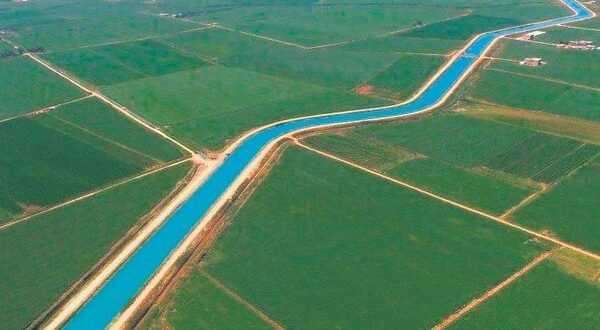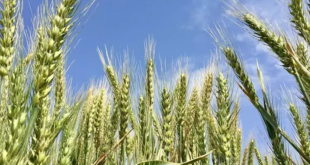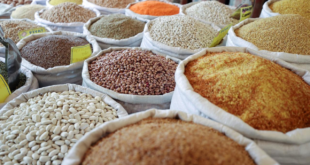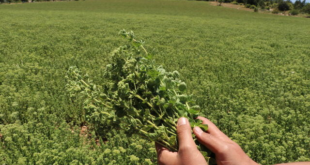As the country experiences water shortages due to climate change, the new Mardin-Ceylanpınar canal from the Atatürk Dam in Şanlıurfa to Mardin in southeastern Türkiye began supplying water to nearly 1 million decares of agricultural land, relieving farmers to increase production.

Within the scope of the Southeastern Anatolian Project (GAP), a multi-sector integrated regional development project, the canal has been completed and was put into service on Wednesday.
With its 221-kilometer (137.23-mile) length, the “canal of abundance” will allow the region to harvest crops three times a year and boost farmers’ income.
“The Mardin-Ceylanpınar Main Canal is the longest artificial river in Türkiye. It is longer than the Suez Canal and three times the size of the Panama Canal. When all sections are completed, 50,261 hectares (124,197 acres) of land, equivalent to the size of 70,000 football fields, of agricultural land will be irrigated,” the Agriculture and Forestry Ministry said.
The canal cost TL 2 billion ($75 million) to construct.
With the canal, 35% of the country’s grain needs will be met from this region.

“It is a historical event that the water of the Euphrates River will meet the fertile lands of upper Mesopotamia,” Dursun Yıldız, the head of the Water Policy Association, told local media.
Yıldız noted that the project is set to double agricultural yields, expanding the range of products beyond grains to include citrus fruits and greenhouse farming.
Pointing out that bringing the Euphrates’ water to the Mardin Plain will not only benefit the region and Türkiye but will also significantly contribute to neighboring countries’ food security, Yıldız stated that excessive groundwater usage in the region over the last three decades would also curb.
Mehmet Şerif Öter, head of Kızıltepe Grain Trade Center, also highlighted that the canal could generate employment for approximately 300,000 people.
“The canal will irrigate these lands, and these lands will feed the entire nation. The project will be a source of livelihood for 300,000 individuals and breathe life into the region,” Öter said.

“We currently harvest twice a year. With the canal, in some areas, three harvests could even be possible annually. The Mardin Plain currently meets 20% of the country’s wheat and legume needs. Once the canal is fully operational, the Mardin Plain will fulfill at least 35% of our country’s needs. If production thrives, external dependence will decrease,” he added.
Remzi Tekin, a farmer in Kızıltepe district, stated that they suffer from water shortage due to the scorching heat in the summer and that the producers will be relieved once the project is completed.

Veysi Dalmış, another local farmer, explained that the region will have a vibrant capacity in terms of agriculture through irrigation channels and said, “GAP will make a serious contribution to the country’s economy. Currently, we draw water from 600-700 meters. If we enrich the Mesopotamian Plain, our irrigation needs will be fulfilled without relying on external sources.”
 THE GLOBAL WINDOW OF TURKISH FOOD AND AGRICULTURE The Global Window of Turkish Food and Agriculture Sector
THE GLOBAL WINDOW OF TURKISH FOOD AND AGRICULTURE The Global Window of Turkish Food and Agriculture Sector









